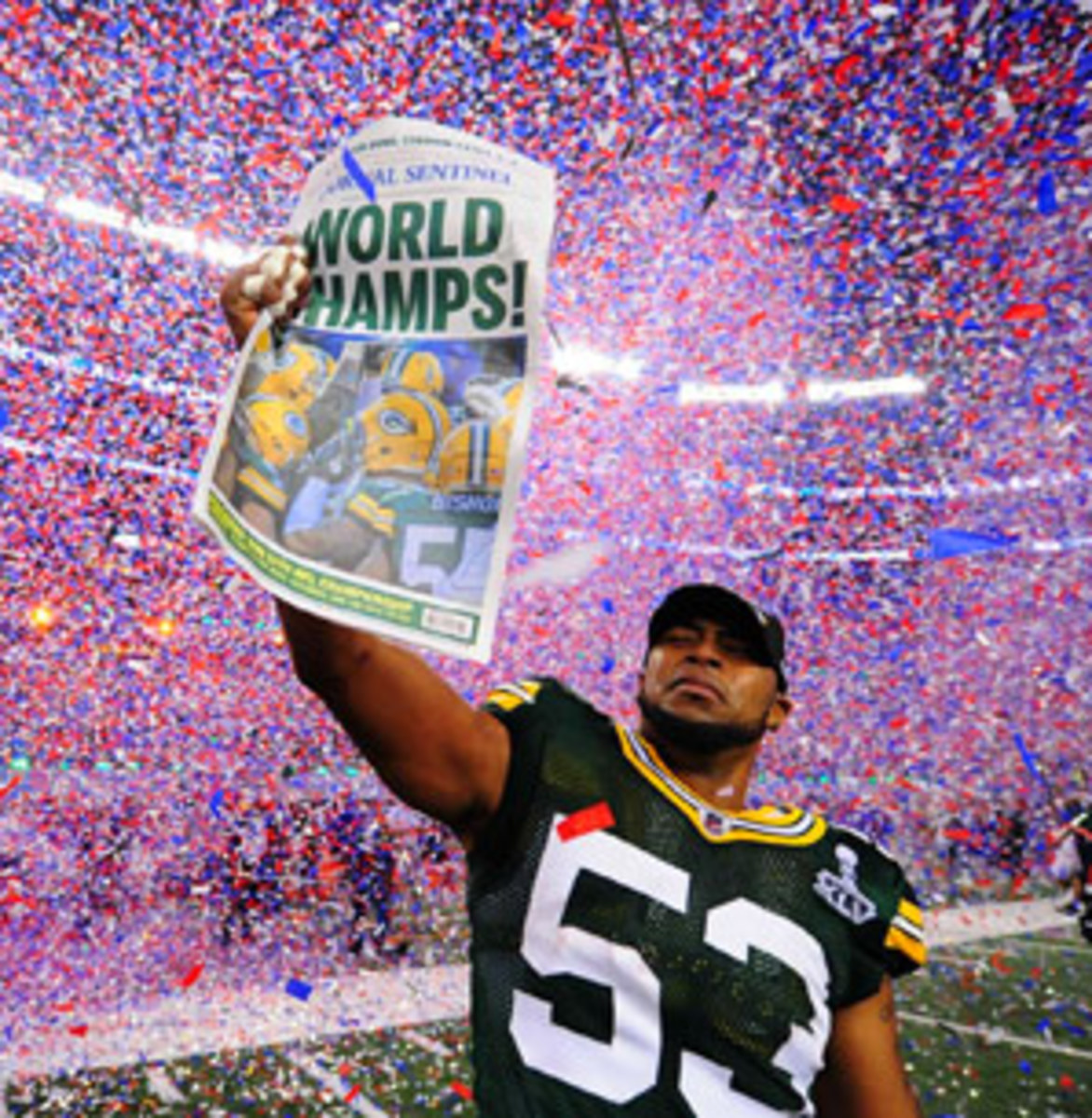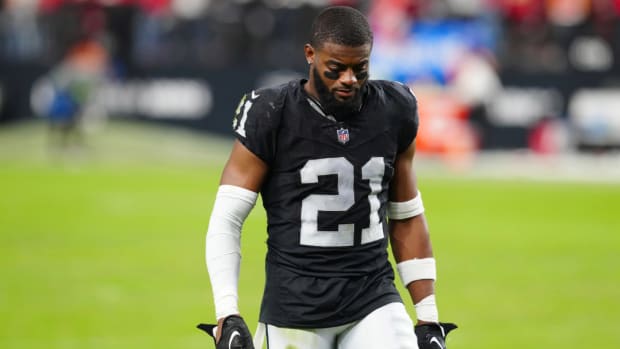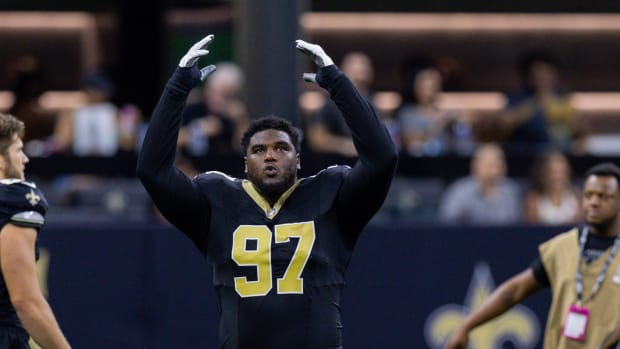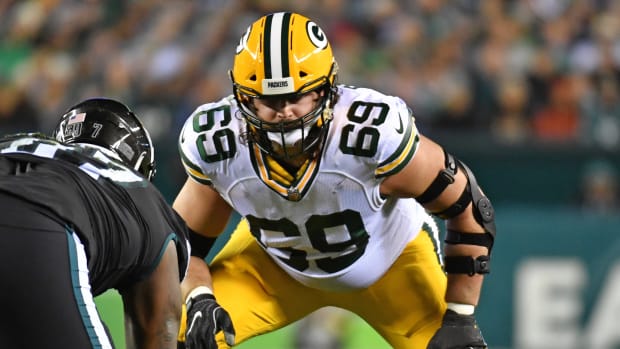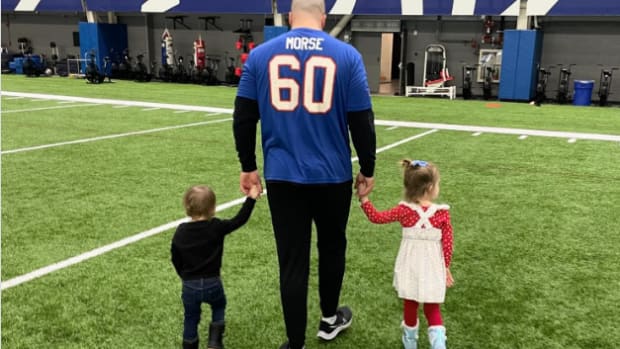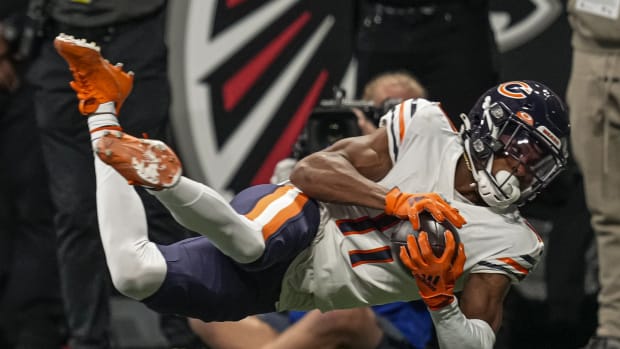Memo to the NFL: A work stoppage is disastrous to your health
Hope you all enjoyed the Super Bowl last night. There won't be any football for a while.
Maybe a long while.
NFL fans have learned to live a few months without football. But a lockout? What will a lockout do to draft day? How will we live without offseason conditioning camps? Summer two-a-days? Those criminally-priced preseason games?
And what if there is no football come Labor Day? No Sunday Night Football. No Monday Night Football. No (gulp) Sunday afternoon football.
Think of what that would do to Peter King's Monday Morning Quarterback. Now think of what it would do to you and your fantasy team.
It's ridiculous, of course. We are talking about millionaire players and billionaire owners. They have to find a way to make peace, to figure things out. There has to be pro football in America in 2011.
Unfortunately we have seen dumb things like this happen before.
There was no National Hockey League in 2004-2005. Players lost more than $1.8 billion in wages. The NHL suffered. Teaching your fans that they can live without you for a year is a prescription for disaster.
Baseball has been rocked by labor strife on numerous occasions. I grew up in Boston and we're still bitter about the strike-shortened baseball season of 1972. The Red Sox wound up playing one less game than the Detroit Tigers. The Tigers finished 86-70 while the Red Sox finished 85-70. The Tigers were crowned division champs and went to the ALCS. The Red Sox never got to play that extra game which could have put them in a tie.
I was covering the Baltimore Orioles when Marvin Miller sent his players out on strike in 1981. I was staying with the Orioles in a hotel in Seattle and still remember catcher Rick Dempsey asking traveling secretary Phil Itzoe for if airplane ticket back to Baltimore. Nice guy Phil gently reminded Rick that the players were on strike. They were on their own.
Figure it out for yourself.
The lengthy '81 strike created more postseason injustice.
Baseball decided to crown first-half and second half champs. It was goofy. The Orioles won more overall games than the New York Yankees, but didn't make the playoffs because the Yankees won the first half and the Brewers won the second half of the American League East.
Baseball's darkest hours since the Black Sox Scandal came in 1994 when commissioner Bud Selig canceled the World Series due to a work stoppage. Refusing to accept a salary cap, Players Association chief Donald Fehr took the players off the field on Aug. 12, and on Sept. 14 Selig called the whole thing off. It marked the first time the World Series wasn't played since the New York Giants refused to play the Red Sox of the upstart American League after the 1904 season.
The baseball strike of '94 extended into spring training in 1995 and baseball owners assembled teams of replacement players. The fraudulent prospect of scab teams playing big league ball was stopped by a court ruling near the end of spring training and the real games resumed on schedule in 1995. But the damage was done.
You can make a case that baseball's steroid scandal was aided and abetted by the baseball strike of 1994. The national pastime was desperate to get fans back after the cancellation of the '94 postseason and this might be why we all looked the other way during the roided-up Mark McGwire-Sammy Sosa home run chase. Everyone was rooting for baseball to come back and the long ball was a big selling point. Cal Ripken's consecutive games streak and the home run chase of '98 were largely credited with "saving the game.'' We later learned that the homers were artificially enhanced. Rampant cheating was part of the post-strike fallout.
And now we are faced with the looming lockout of the NFL, scheduled for March 4. NFL commissioner Roger Goodell said last Friday that the owners need an 18 percent rollback in player salaries because, "the pendulum has swung too far in one direction.'' Representatives for owners and players are scheduled to meet twice this week at an undisclosed location. The collective bargaining agreement expires March 3 and if there's a lockout there'll be no free agency period and no organized workouts.
"It would be criminal not to make a deal,'' New England Patriots owner Bob Kraft said Friday. "We are concluding one of the greatest seasons in the history of the National Football League. It really was one of the most competitive seasons we've ever had.''
Goodell added, "I think it's clear the fans just want our sport. They don't care about the details.''
He's right. We don't care that the owners don't have cities willing to build new stadiums anymore. We don't care if NFL first-rounders are making too much money. We don't care if it's an 18-game schedule or a 16-game schedule.
We just want our football.
































